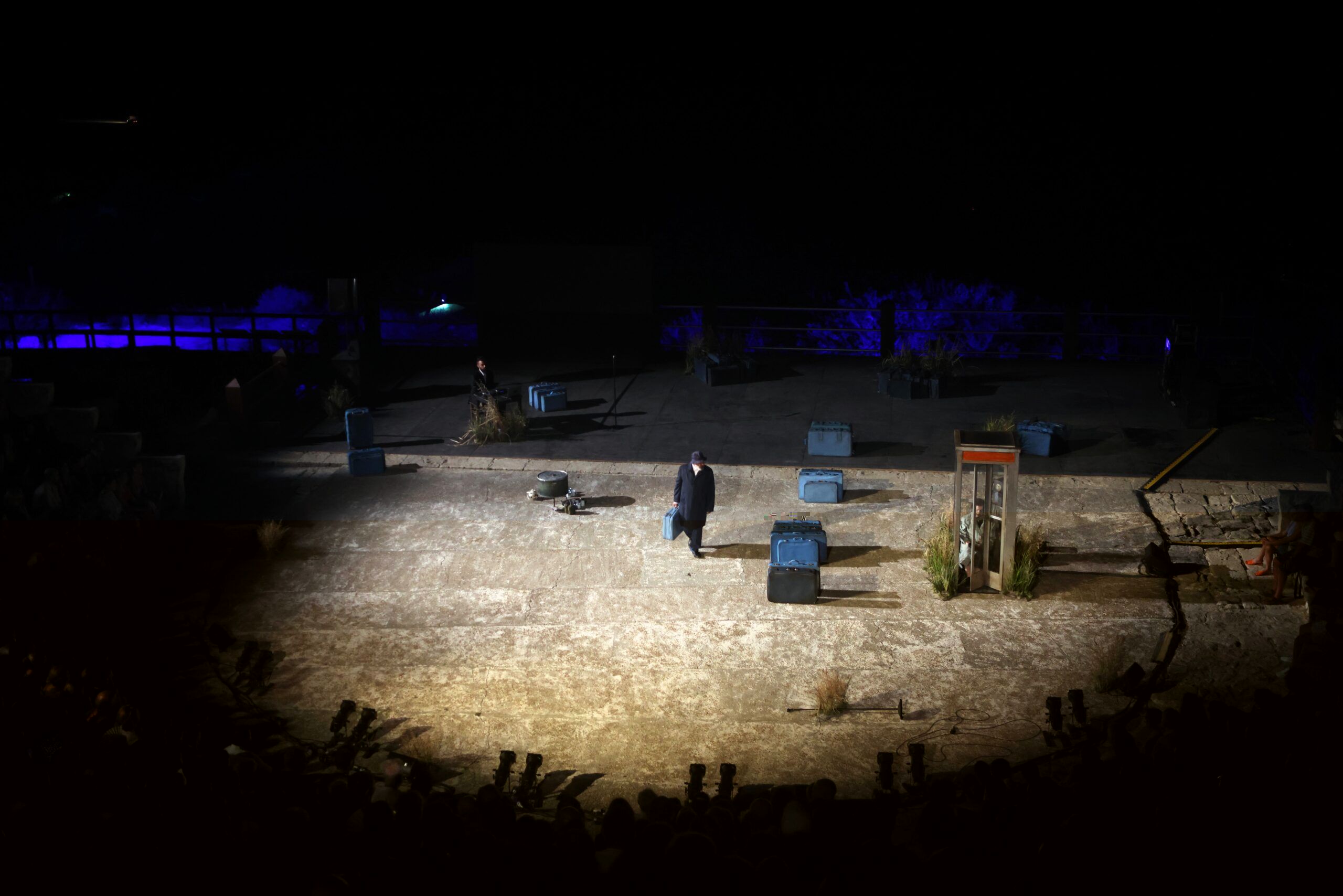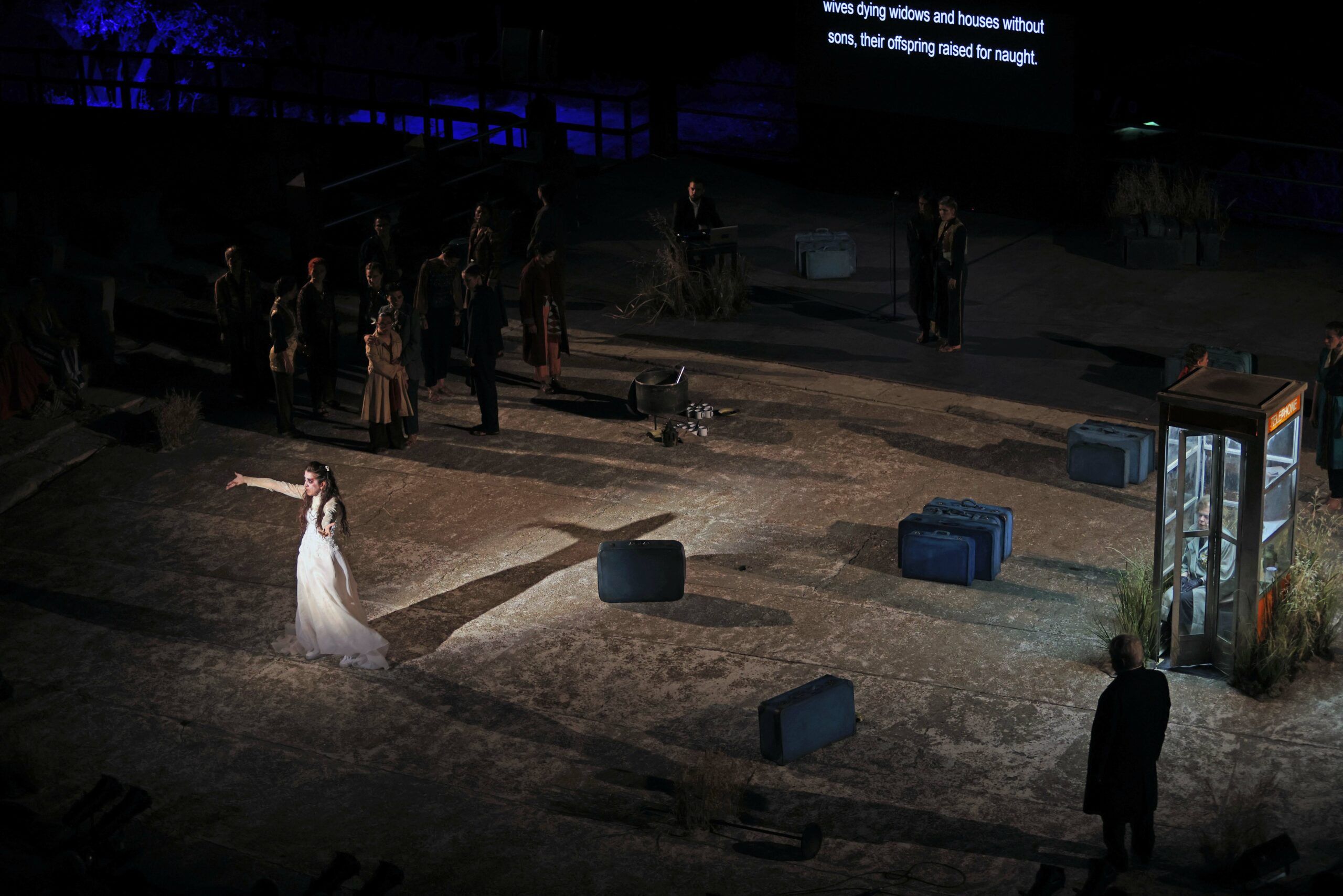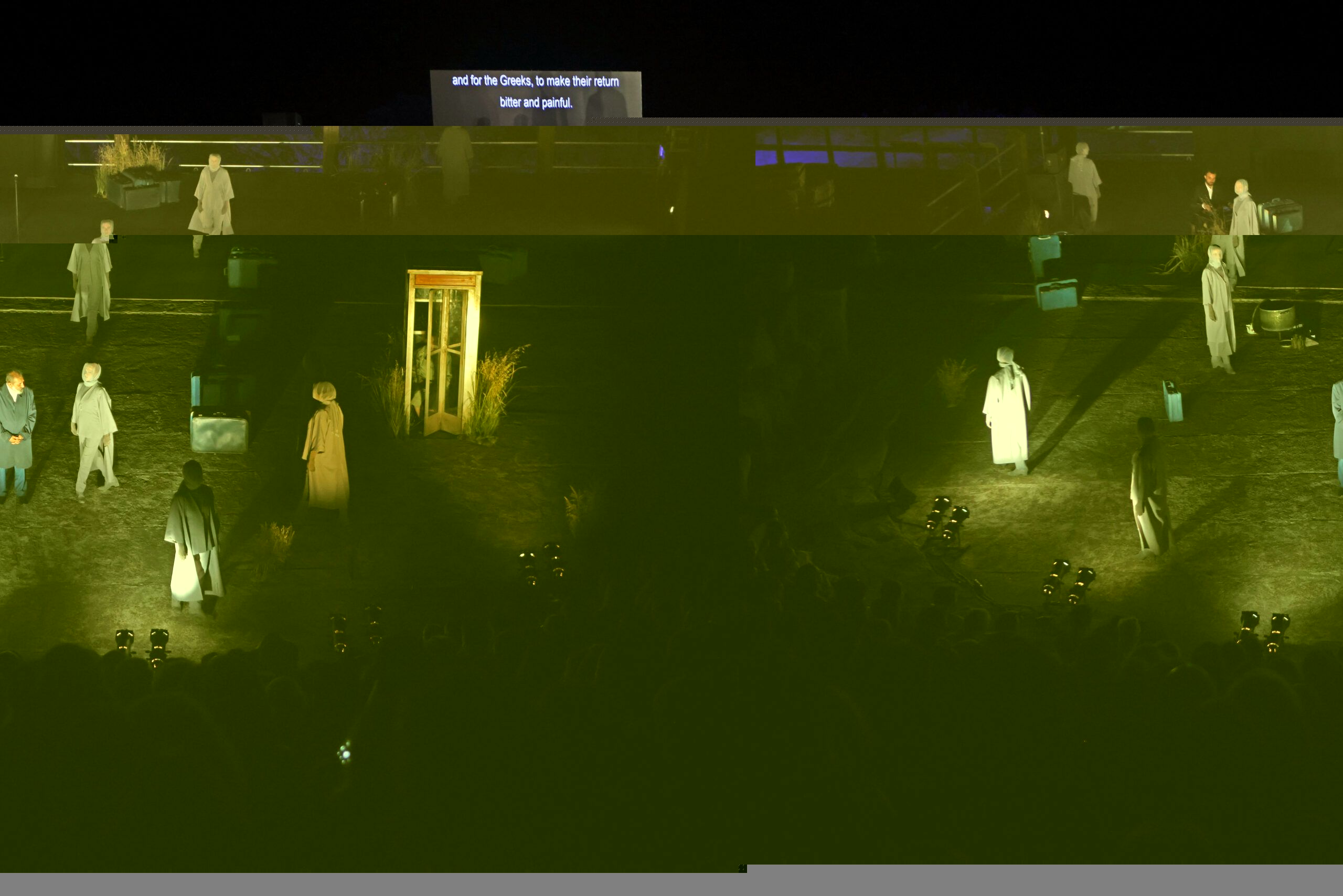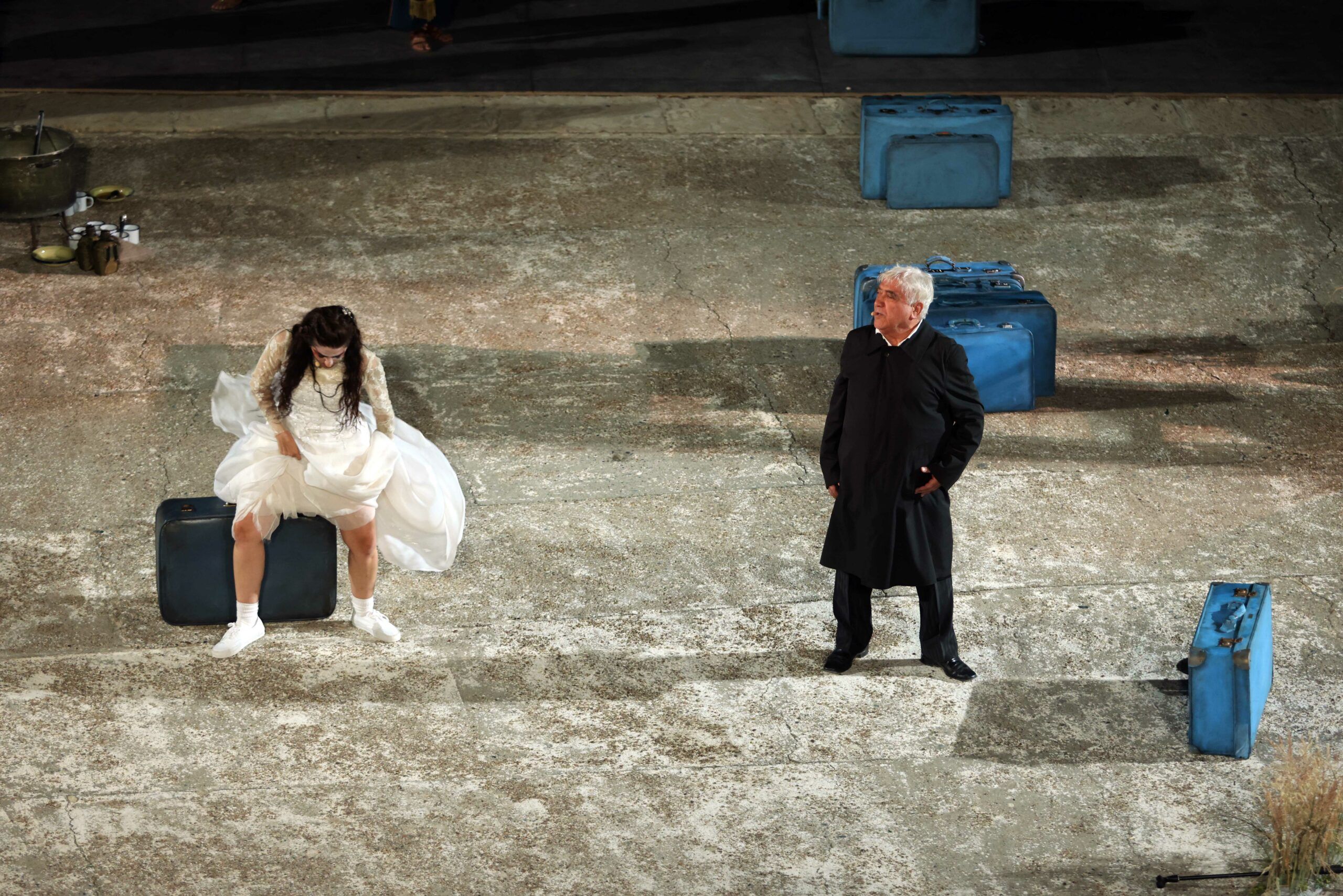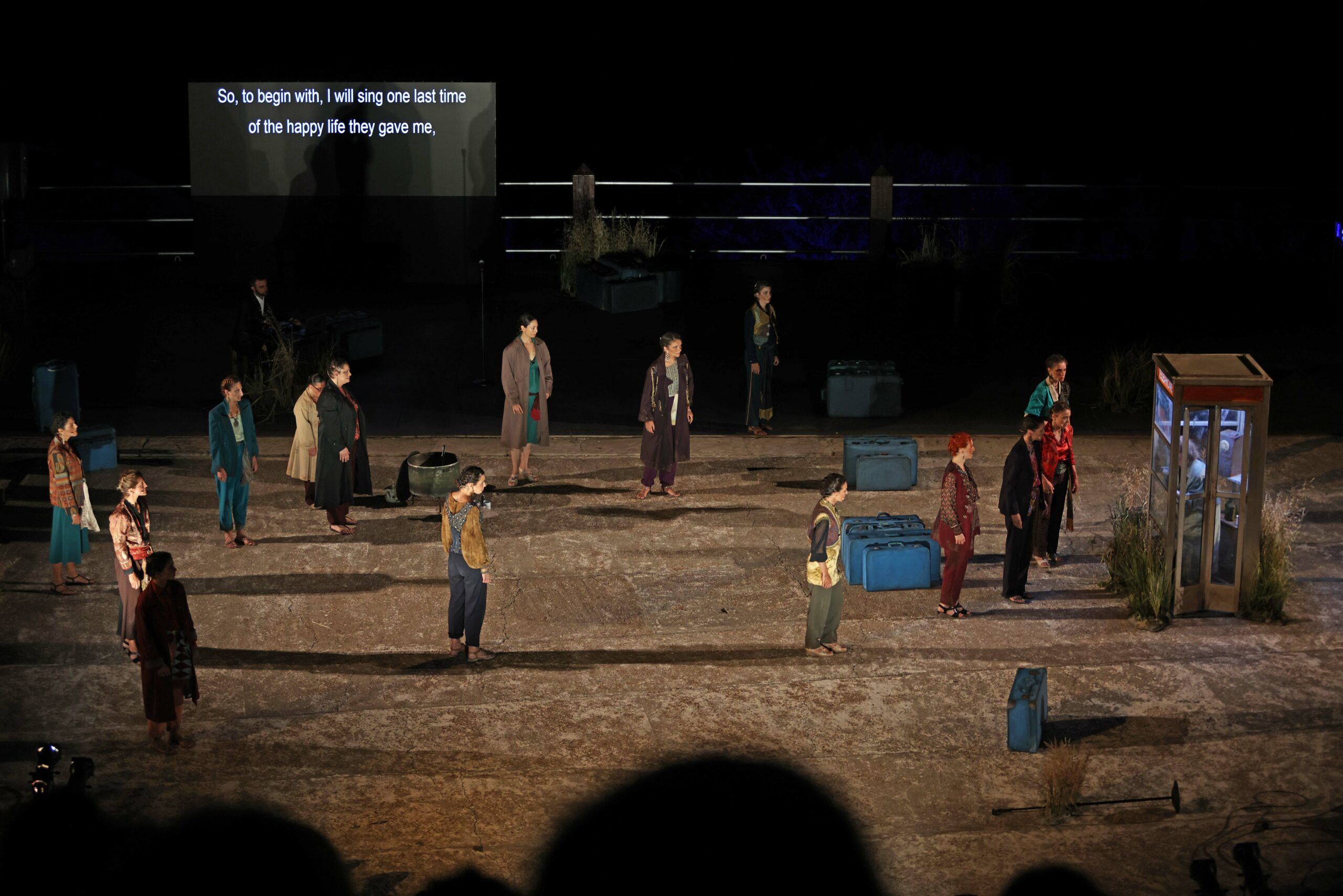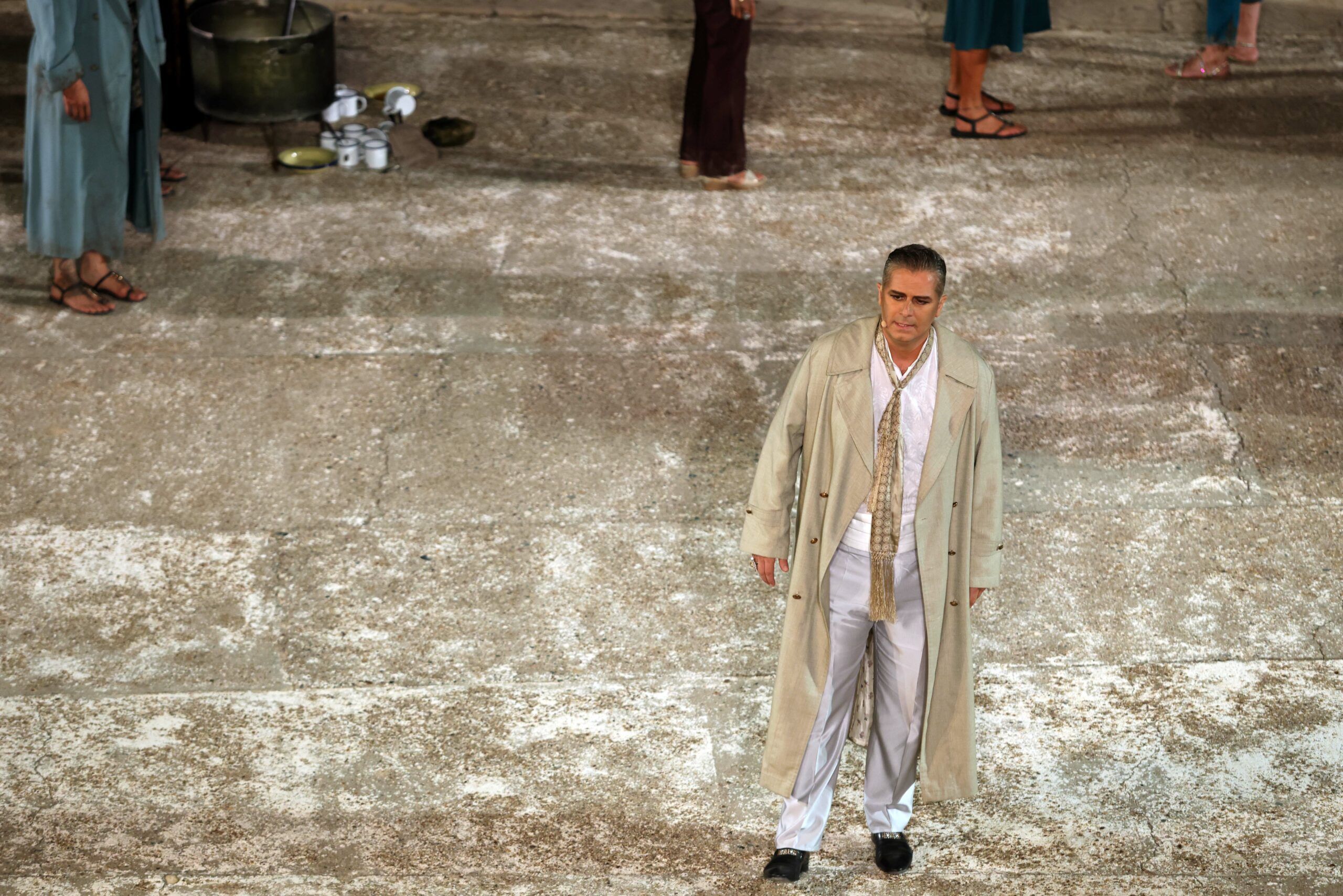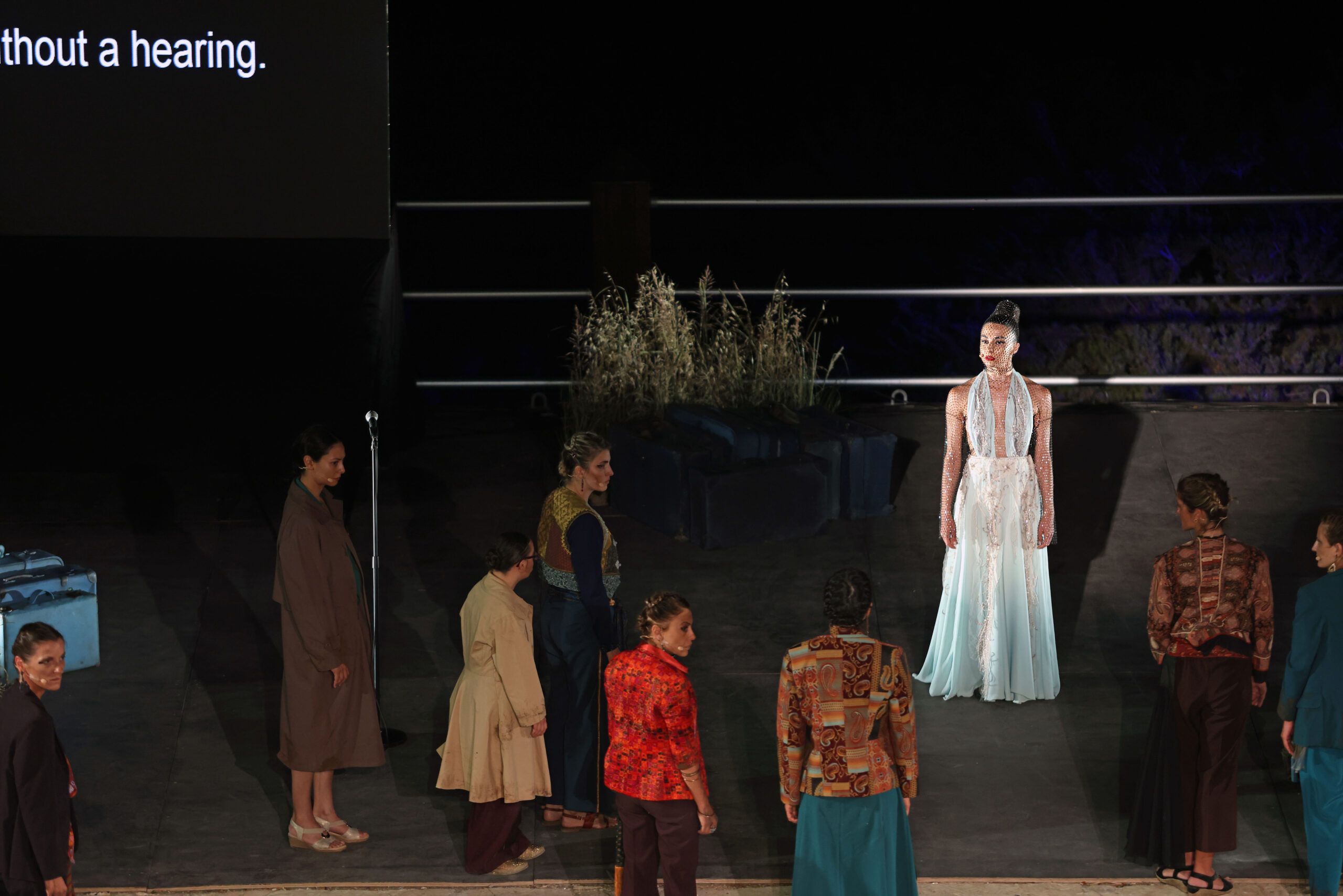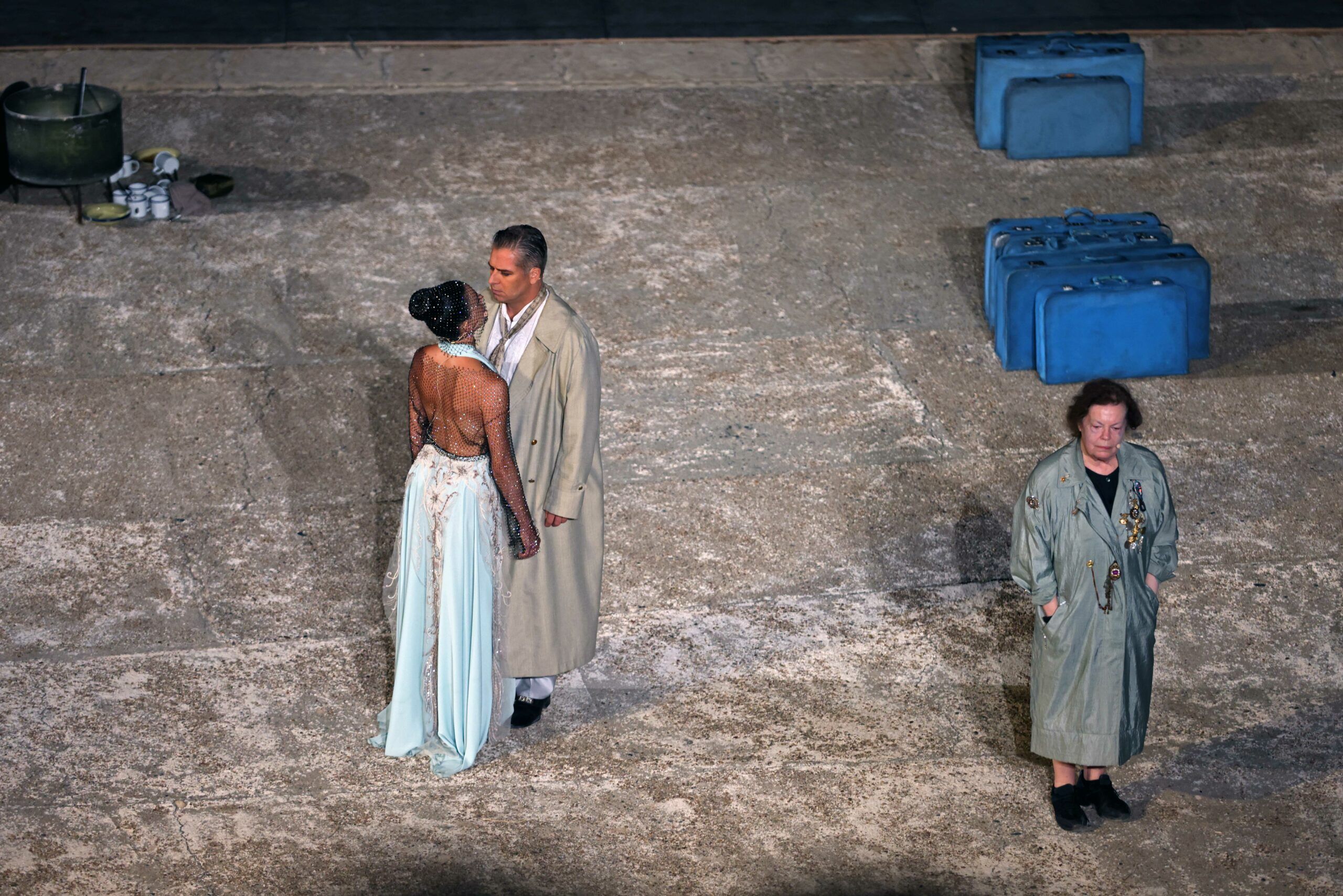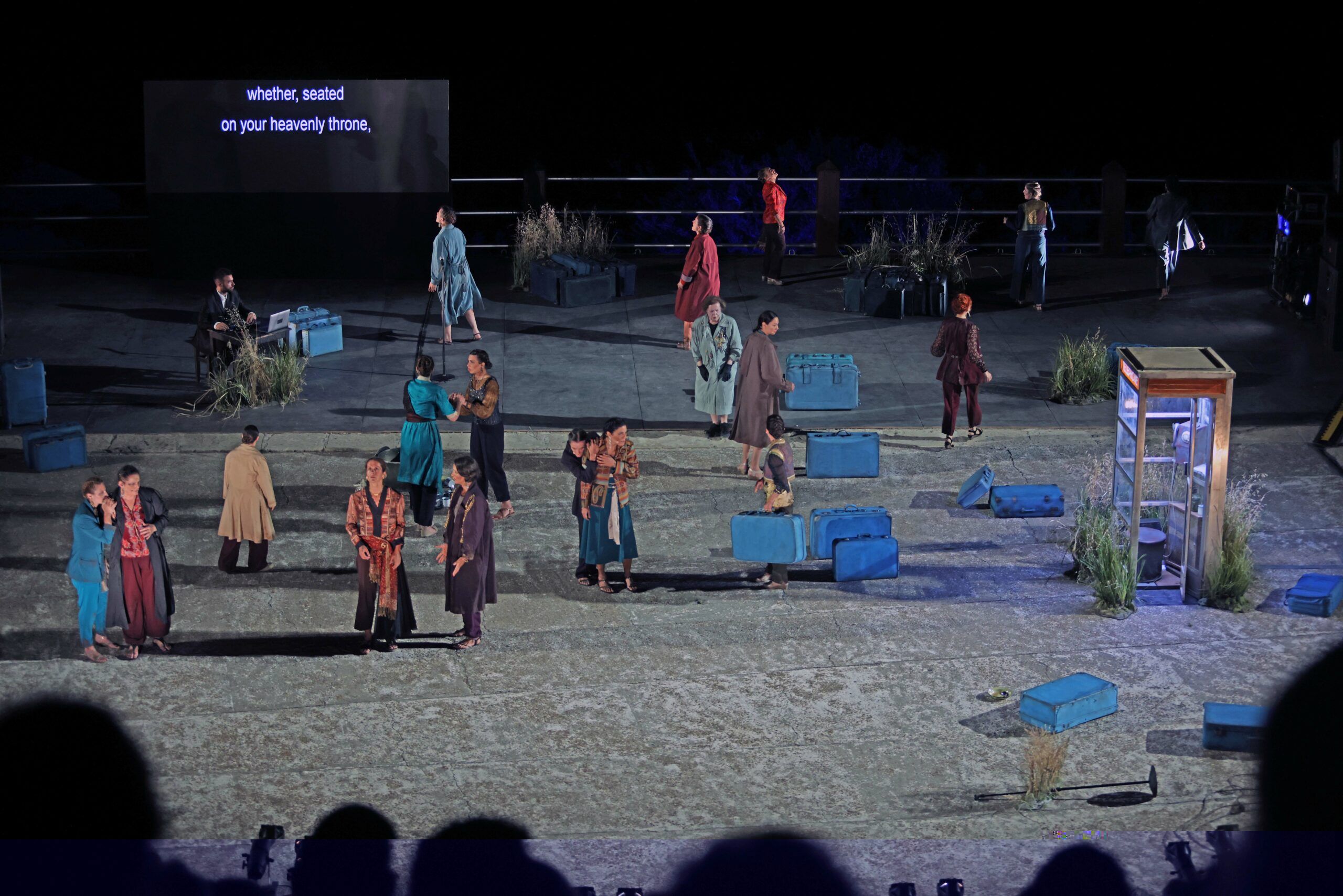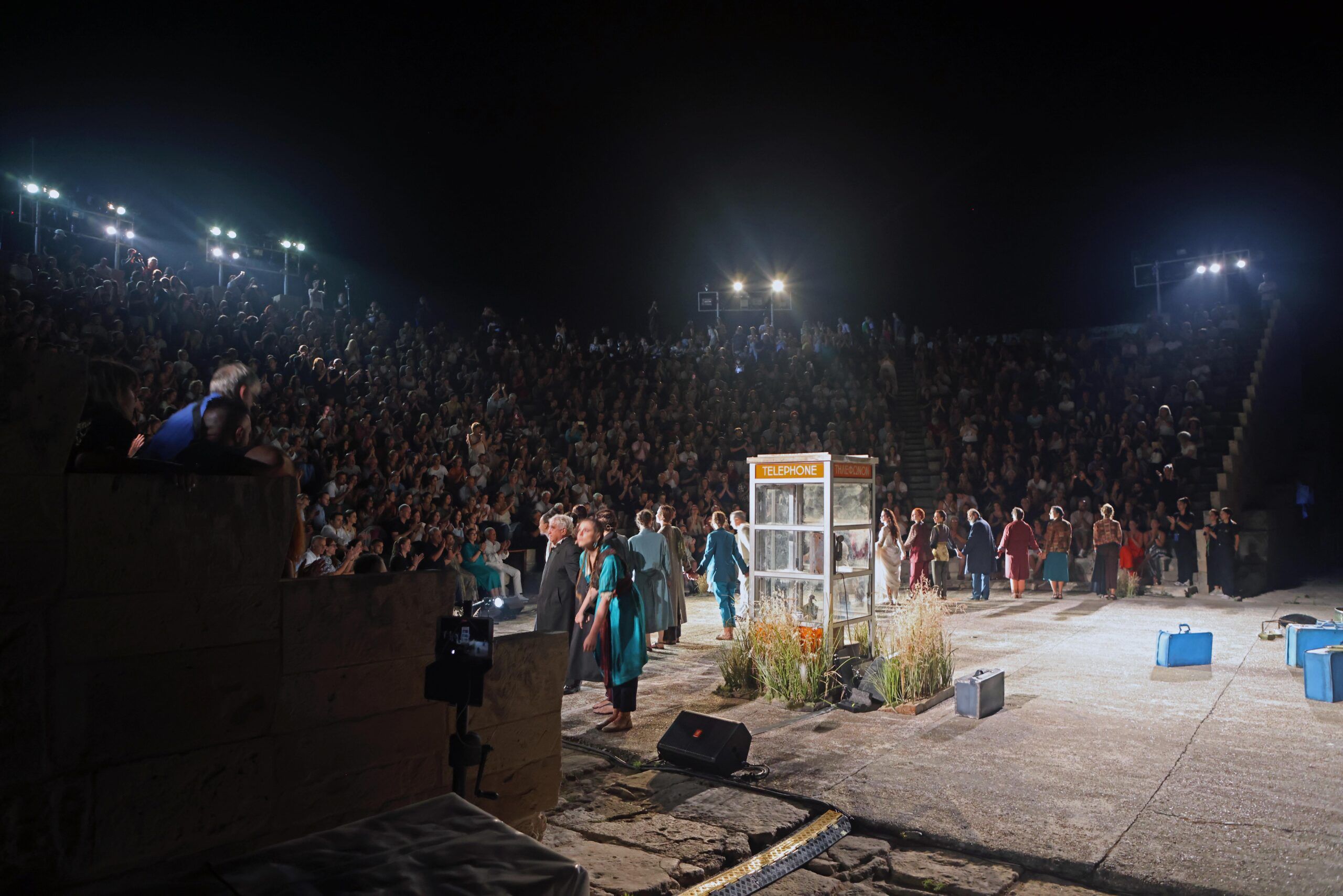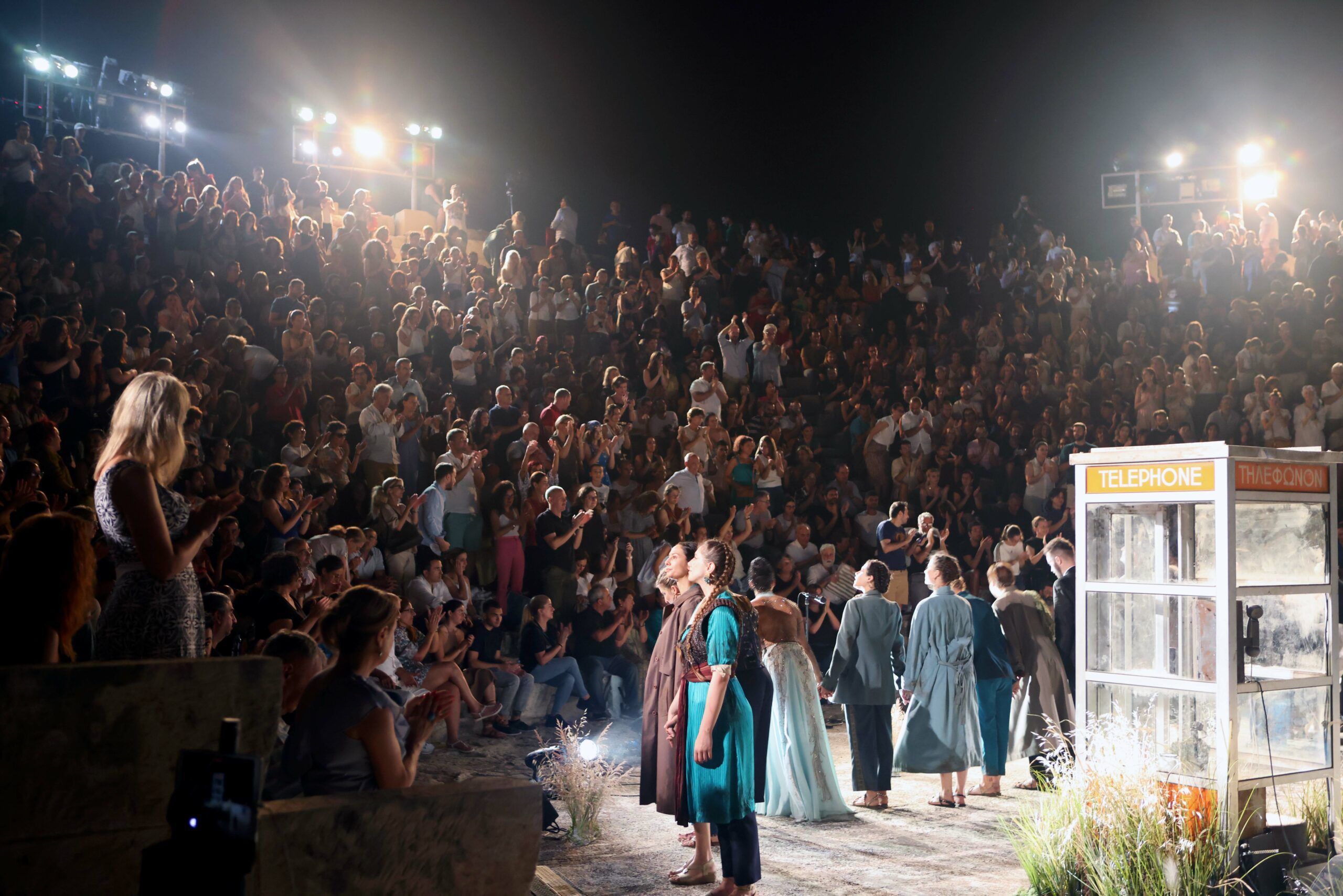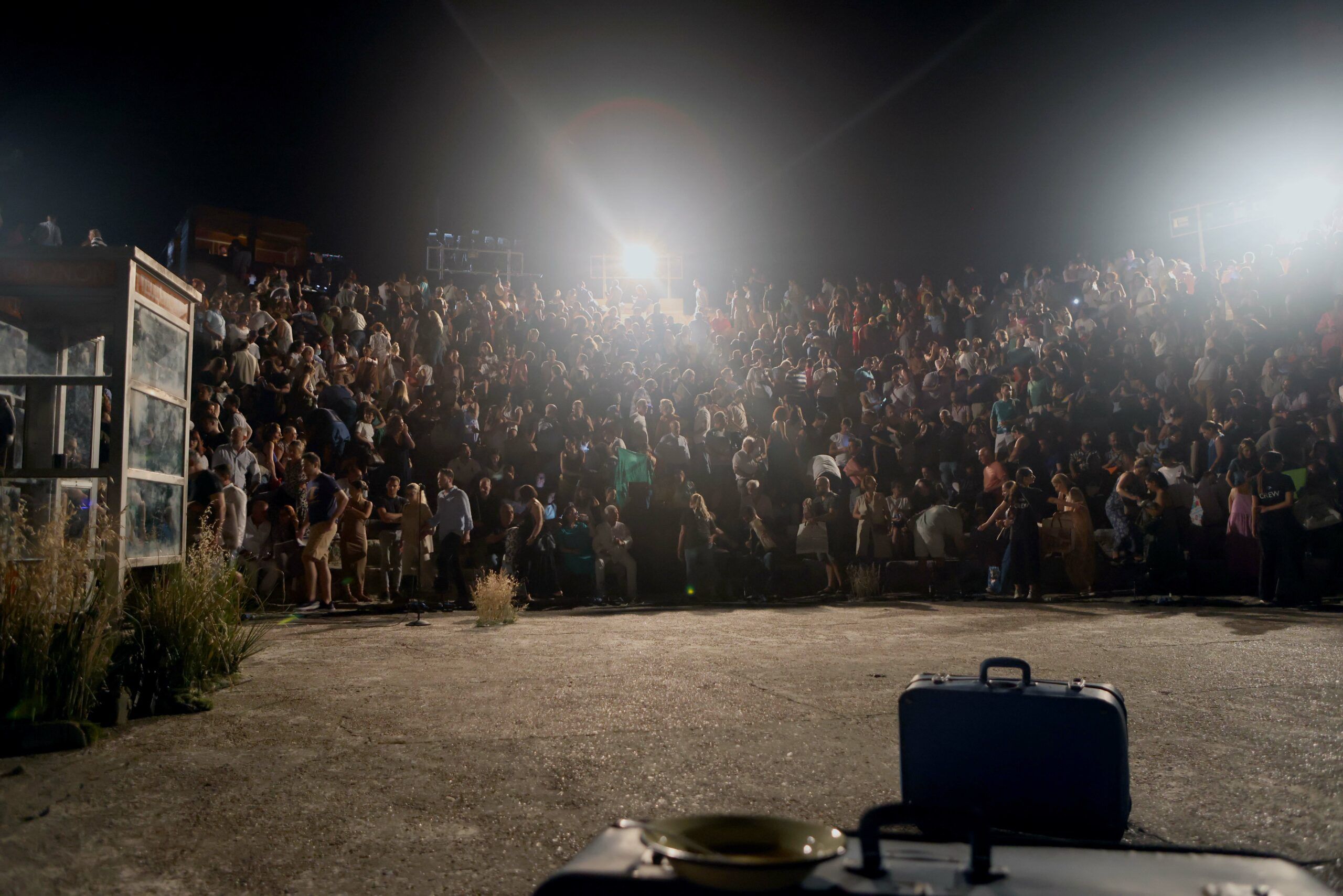THE TROJAN WOMEN by Euripides
- Friday, July 14Curium Ancient Theatre
- Saturday, July 15Curium Ancient Theatre
- Performances start at:21:00Please arrive at the theatre before 20:00
The National Theatre of Northern Greece (NTNG) presents the Euripidean tragedy The Trojan Women, translated by Thodoros Stefanopoulos, directed by Christos Sougaris and with music composed by Stefanos Korkolis, with a superb cast of actors and Roula Pateraki in the role of Hecuba.
As they await to be transported to Greece, the captive women of Troy mourn the fall of their city. Among them, waiting for her fate to be announced, Hecuba is confronted by a series of devastating events: Polyxena is sacrificed at Achilles’ tomb and Andromache learns that the Greeks have condemned her baby son, Astyanax, to death. At the same time, Kassandra foretells the disasters that will befall the Greeks on their way home.
Euripides attempts to warn us about the consequences of the victors’ impunity and to remind us of the importance of remaining human, away from the illusion of omnipotence caused by fleeting victories. In The Trojan Women, the poet brings out the human dimension of the enemy and, focusing on the greatness of the women of Troy, highlights the strength that makes humans persevere even in the wake of catastrophe.
A recipient of the 2018 “Young Theatre Artist” award by the Union of Greek Critics for Drama and Music, director Christos Sougaris, head of the NTNG’s artistic programming, presents a novel take on Euripides’ masterpiece.
WITH ENGLISH SURTITLES
SUITABLE FOR AGES 16+
DURATION: 110 MINUTES
- Translation:Theodoros Stefanopoulos
- Dramaturgy/Direction:Christos Sougaris
- Music composition:Stefanos Korkolis
- Set/Costume design:Eleni Manolopoulou
- Movement:
Ermis Malkotsis
- Lighting design:Alekos Anastasiou
- Music coaching:
Panagiotis Barlas
- Assistant to the director:
Christoforos Mariadis
- Assistant to the set/costume designer:
Danai Pana
- Production Coordinator:
Marleen Verschuuren
Cast:
- Hecuba:Roula Pateraki
- Menelaus:Alexandros Bourdoumis
- Kassandra:Maria Diakopanagiotou
- Andromache:Mariza Tsari
- Talthybius:Dimitris Piatas
- Poseidon:Antonis Kafetzopoulos
- Athena:
Melina Apostolidou, Loukia Vasileiou, Momo Vlachou, Chara Giota, Ilektra Goniadou, Christina Bakastathi, Kleio-Danai Othonaiou, Polyxeni Spyropoulou, Virginia Tamparopoulou, Theofano Tzalavra, Mara Tsikara
- Helen of Troy:Loukia Vasileiou, Kleio-Danai Othonaiou
- Chorus:Marianna Avramaki
Melina Apostolidou
Loukia Vasileiou
Momo Vlachou
Chara Giota
Ilektra Goniadou
Zoi Efthymiou
Ilektra Kartanou
Evi Koutalianou
Loxandra Lucas
Eleni Mischopoulou
Christina Bakastathi
Chrysi Bachtsevani
Kleio-Danai Othonaiou
Polyxeni Spyropoulou
Virginia Tamparopoulou
Theofano Tzalavra
Foteini Timotheou
Mara Tsikara
DIRECTOR’S NOTE
My relationship with this tragedy by Euripides, began when I was still a student at the drama school of the National Theatre of Greece.
The Trojan Women was our year’s graduation project and along with Vassilis Papavassiliou’s Ajax, Antoine Vitez’s Electra and Matthias Langhoff’s The Bacchae, it marked the start of an intense personal quest into, and love for, this theatrical genre and the different ways it can be performed on stage; a quest which remains ongoing today.
Which is to say I’m one of those theatre-goers who will take in every production they can of works by the three great tragedians and pay close attention to the different on-stage readings of these masterworks.
What I enjoy most of all is the diversity -when it exists- in the aesthetic approaches the different productions take to the narrative. And that’s because many of us make the mistake of thinking there’s only one version of Antigone, Oedipus, or Hercules, and that there can, therefore, be only one aesthetic approach to their narratives.
What really makes an impression on me, is that our tragic poets, as well as the audiences who attended stagings of ancient tragedies during its 20th-century heyday, liked to discuss them in terms of the well-known myths, but mainly on the basis of their personal interpretations.
Sophocles’ Electra is not the same as Euripides’ Electra. And would they hold any interest for us if they were?
The verbalistic version of narrative came to the fore aesthetically in the mid-20th century, and its last vestiges plague us still. That is because, as the unfortunate inheritors of the directors and stars of Greece’s glorious theatrical past, we have had to protect, preserve and disseminate their only arguably interesting stagings. Unfortunately, even today, we still bother our heads with questions like ”how is tragedy performed?”, whether it is appropriate to ”tread the thymele” of the Argolic theatre, if it is disrespectful (to whom?) to use microphones in performances of the genre, and whether it is “permitted” to interpret the genre in a manner which diverges from the archetypal near-ritualistic style which has been revealed to us in various ways and interpretations by the indubitably useful and important research of archaeologists, philologists and theatre professionals alike.
I have always had the feeling, which sometimes amounts to faith, that you can be respectful of the genre even as you attempt to engage meaningfully through it with your contemporary audience, in the context of a sincere effort which begins with a personal, private performance before ending up before the public. I dare say that the louder we are, the less we can hear what we’re saying.
The genre is not at risk from performances that may come across as “modernistic”. Like any other, the genre is only at risk from indifferent, sloppy and ultimately weak performances.
So, continuing our on-stage study of the tragic genre, this production of The Trojan Women will provide my excellent collaborators and me with yet another opportunity to present audiences with our highly personal reading of a narrative by a truly innovative tragedian which tells its heart-breaking tale with quiet sincerity.
Christos Sougaris
NATIONAL THEATRE OF NORTHERN GREECE
The National Theatre of Northern Greece (NTNG) is one of the country’s largest theatre institutions. With its five indoor and two outdoor stages, plus the appearances it makes on tour and at festivals both in Greece and internationally, it has been a driving force on the cultural scene since 1961.
The NTNG is a private legal non-profit entity and is governed by a seven-member Board of Directors along with the Artistic Director. It is supervised and funded by the Hellenic Ministry of Culture and Sport.
As a public theatre which repays citizens for the funding it receives through the art, education and entertainment it provides, and which seeks to remain open and accessible to society at large, the National Theatre of Northern Greece has forged a strategy which revolves around the following axes:
- a wide-ranging repertory
- high-quality productions for children and young people
- a focus on theatre education and educational activities
- strong ties and partnerships with cultural institutions, municipal authorities, bodies and social institutions
- An emphasis on social policy
- social activities which raise public awareness
- low ticket prices with a wide range of concessions
- a powerful international presence.
The NTNG’s annual programme brings together its own in-house theatre productions with co-productions with other theatre organizations, stagings of productions from Greece and abroad, and a wide range of cultural events. The Theatre also stages long summer tours around Greece and winter tours of Northern Greece and organizes the annual Forest Festival, a major cultural event for Thessaloniki which includes concerts, theatre and dance.
The NTNG Drama School provides a full theatrical education free of charge and has been a nursery for young actors since 1973.
In addition, taking its social role seriously and doing all it can to make theatre accessible to people of all ages, including those without easy access to live theatre, the NTNG engages in activities provided free of charge to special social groups.
It is a member of the Union of the Theatres of Europe and the International Theatre Institute.
